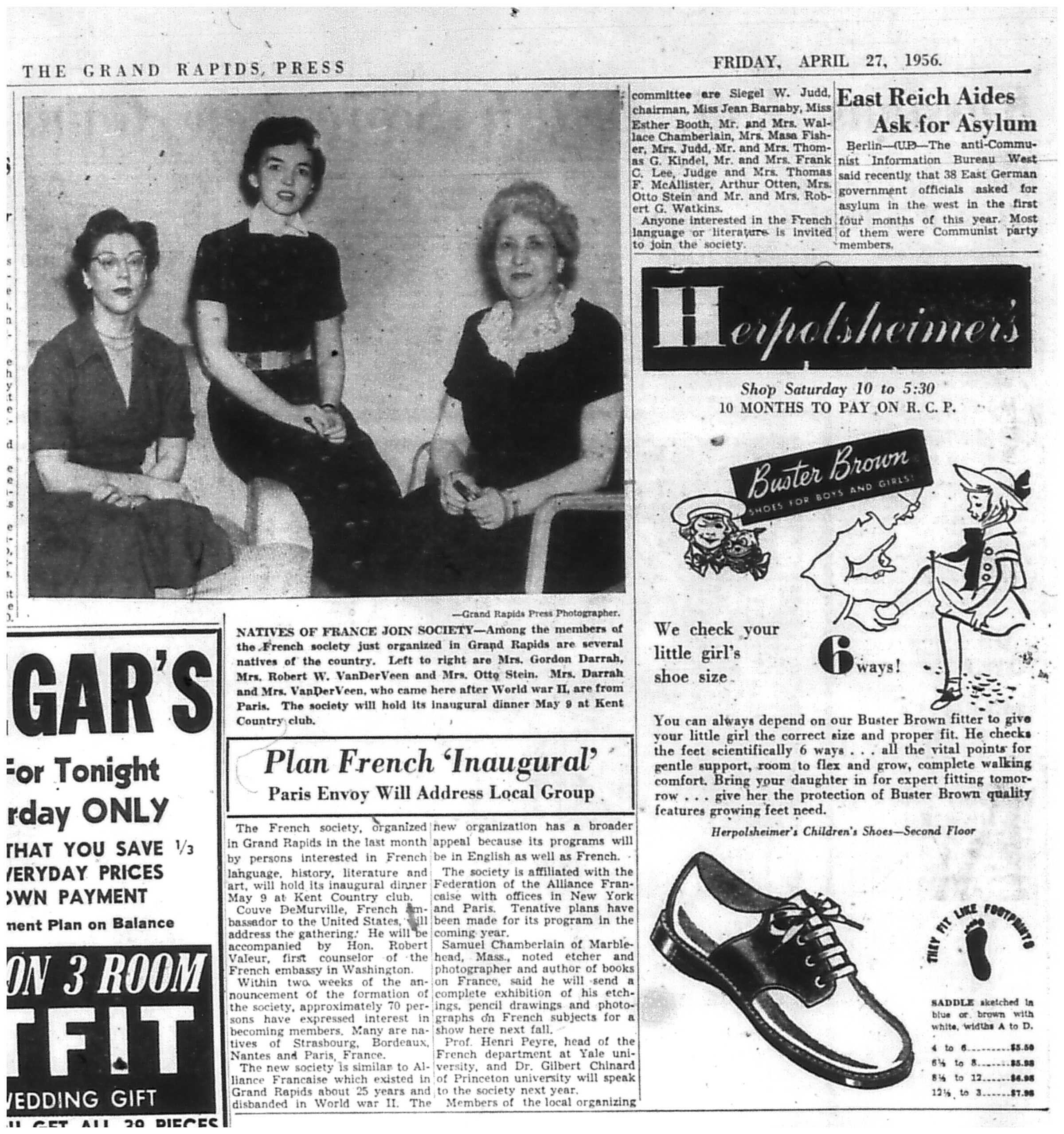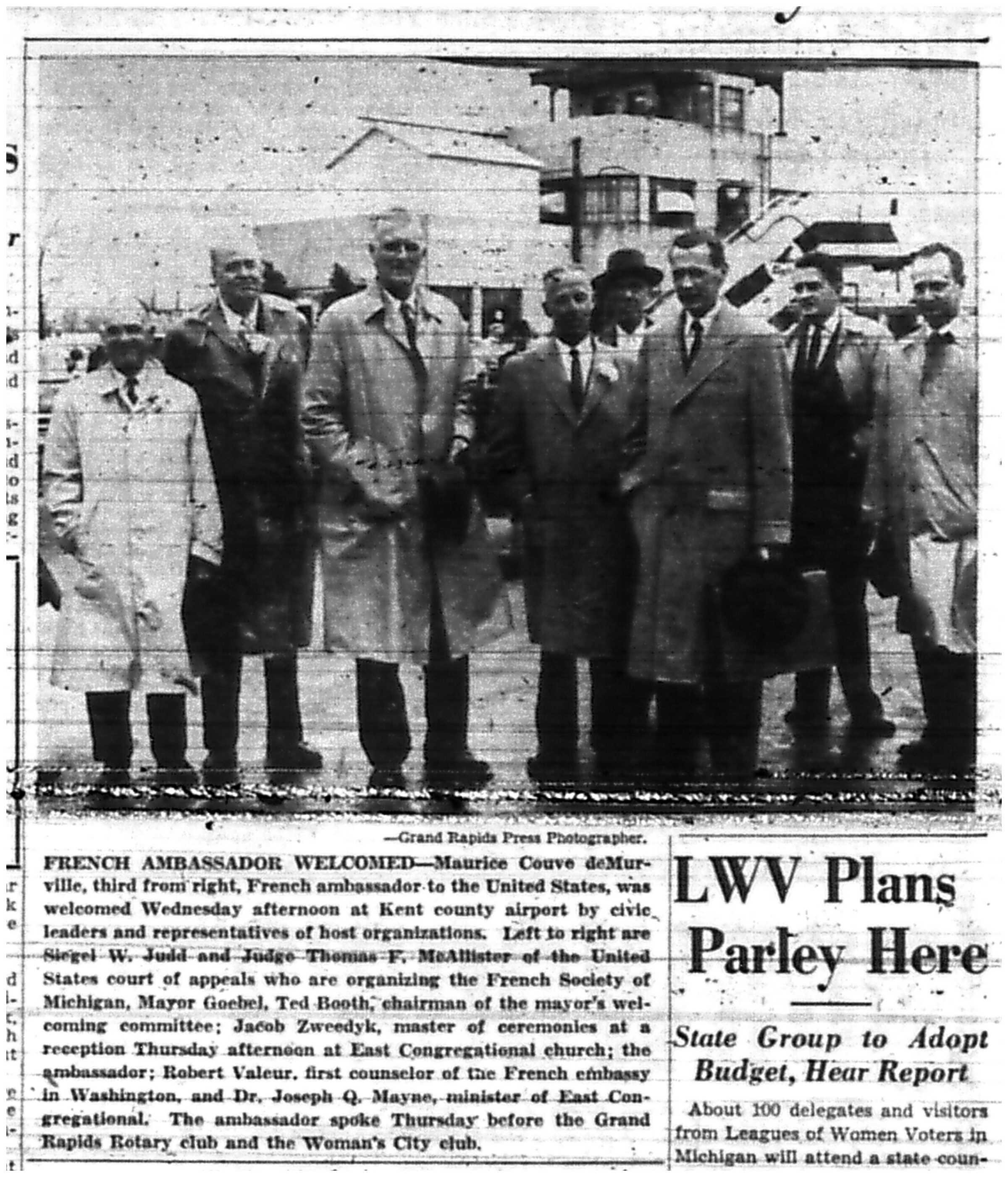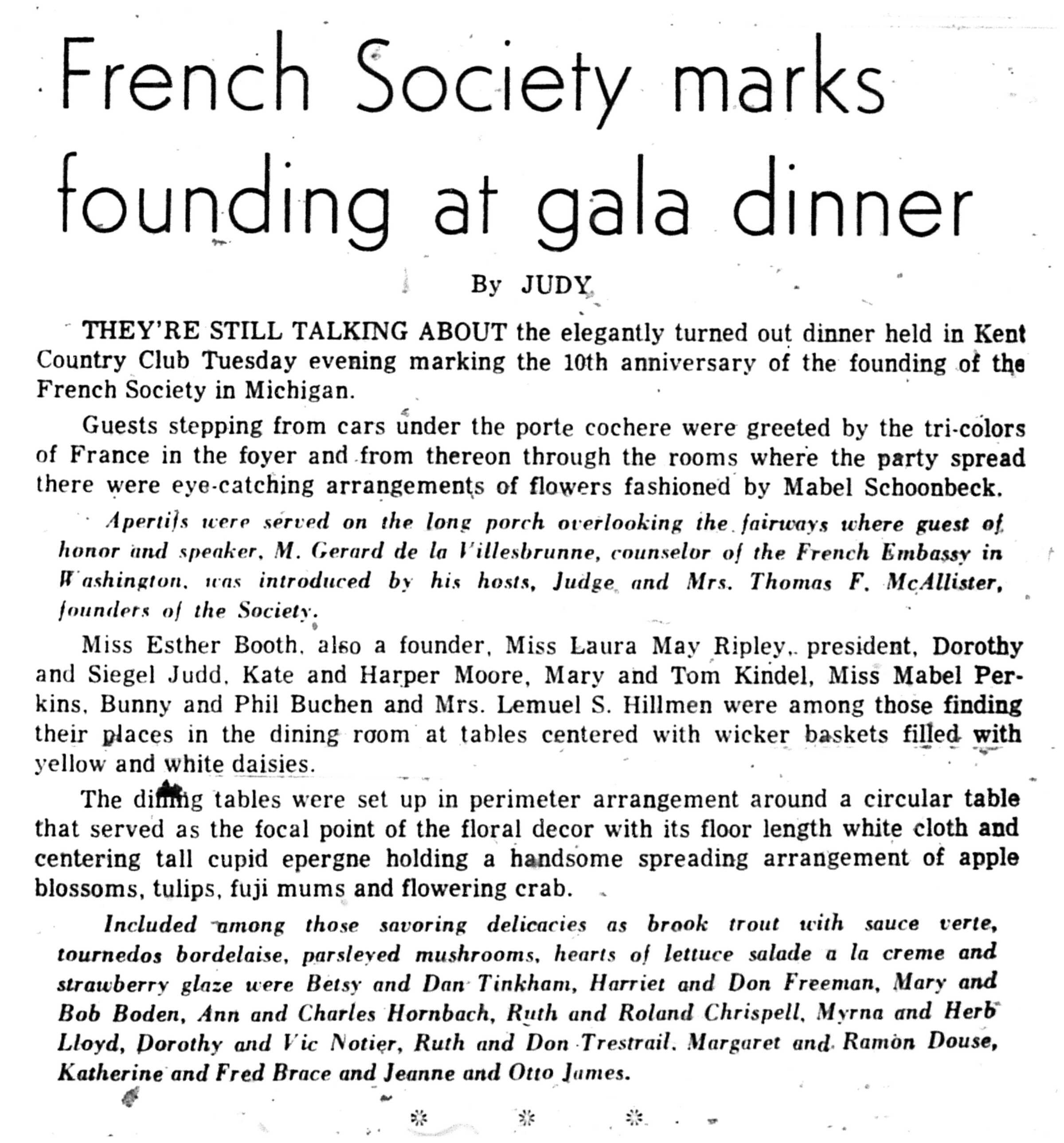Founders Siegel W. Judd and Thomas F. McAllister
The man whose name graces one of West Michigan’s most prominent law firms (Warner Norcross & Judd) also co-founded the nascent French Society of Michigan in 1956, the precursor to the Alliance Française de Grand Rapids. Siegel W. Judd was born Siegel Wright on June 19, 1895 in Leoti, Kansas. According to Judd, his father passed away three months prior to his birth and his mother followed three months later. Providentially, he was adopted by his father’s sister Lillian V. Wright and her husband, Edward C. Judd of Grand Rapids.
Judd grew up in the city, and graduated from Central High School in 1914. That summer was spent working the wheat harvest in Kansas and “following the harvest up” all the way to Saskatchewan, Canada. The Fall of 1914 saw Judd matriculate to Dartmouth College where he would spend the next three years until President Wilson decided it was time for the United States to join the war effort. As Judd later recounted, “in May of 1917 everybody went to war. I mean everybody went down and enlisted. And I went to the Naval Training Station at Newport, Rhode Island and was in the Navy [for] two, two and a half years.”
After the war, Judd attended law school at the University of Michigan in Ann Arbor and entered private practice in 1921. He married Dorothy S. Leonard, a graduate of Vassar College on June 29, 1922 in Grand Rapids. She became an inveterate member of the League of Women Voters — working to democratize civil service reform and would also have a hand in the creation of Grand Valley State College (now University). The couple had one daughter, Harriette Judd Freeman in May of 1926 and made their home on 440 Logan in Grand Rapids. Judd would go on to found the firm that bears his name with David A. Warner and George S. Norcross in 1931, and was instrumental in shaping Grand Rapids’ economic and business climate from the depression onwards. He was in active practice for over 50 years and passed away in 1982.
Thomas Francis McAllister was born on March 4, 1896 in Grand Rapids, Michigan. Like his co-founder, McAllister attended Central High School and pursued undergraduate studies at the University of Michigan. When the opportunity arose to fight in “The Great War,” McAllister jumped at the chance and joined the American Field Service Ambulance Section Sanitaire Unis N.69. After four months with the SSU, he enlisted in the French Foreign Legion as an “aspirant officier,” training at the French artillery college at Fontainebleau before joining the 32nd and 60th infantry divisions. He eventually became a pilot with the Escadrille Spad 285, but after the war ended he never flew again saying he “had used up all of his good luck and good fortune in the air.” In all, he saw action in the battles of Verdun and Les Eparges (1917) and in Champagne, Marne, Somme, Aisne, and Meuse (1918) and was awarded the Croix de Guerre and the Légion d'honneur for his service.
McAllister returned to the University of Michigan and studied Law. As the Michigan Supreme Court Historical Society biography of McAllister recounts:
It is difficult to ascertain the date of his graduation from the University of Michigan Law School. This stems from the fact that he gave a party one evening at the Lawyers Club and invited in some wandering players and acrobats. He assumed full responsibility for all of the excitement of the evening, and was asked to defer getting his degree for a brief period because of his indiscretion. Eventually, the University invited him to receive the degree that he had earned, and, in his gracious fashion, he did accept it.*
He joined his father’s law practice in 1921 and married Dorothy Wonderly Smith (with whom he had two daughters) the same year. Mrs. McAllister was a 1920 graduate of Bryn Mawr and would go on to direct the Women’s division of the Democratic National Committee. However she resigned her position in 1941 when President Roosevelt nominated her husband to a vacancy on the United States Court of Appeals for the Sixth Circuit. Judge McAllister (who had been serving as a justice on the Michigan Supreme court since 1938) spent the rest of his professional life on the bench, ending his tenure as the chief judge of the Sixth Circuit in 1961. He assumed senior status in 1963 and passed away in 1976.
*There is conflicting evidence as to why McAllister did not graduate in 1921. It appears he was finally awarded his degree in 1974.
-Eric Rottman, AFdeGR Historian




